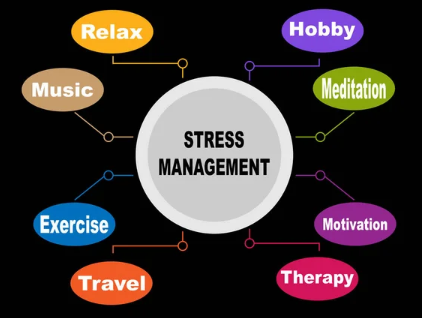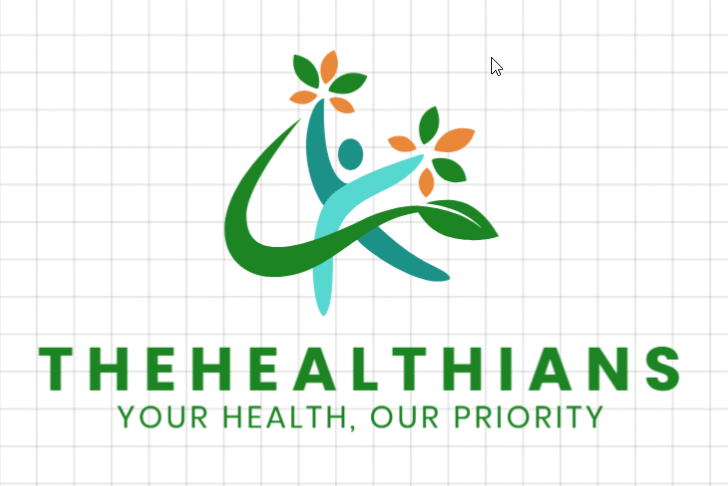Stress management is no longer a luxury—it’s a necessity. In today’s fast-paced world, stress has become an unavoidable part of life. Whether it’s work deadlines, family responsibilities, or financial concerns, many of us feel overwhelmed. The consequences? Sleepless nights, anxiety, health issues, and emotional fatigue.
But here’s the truth: While stress is inevitable, how we handle it makes all the difference. Effective stress management doesn’t mean escaping life’s pressures—it means learning how to cope with them in healthier, more resilient ways.
In this comprehensive guide, we’ll explore 17 proven strategies to help you manage stress, build mental strength, and regain your inner calm. Each technique is backed by science and designed for real-life situations.

Table of Contents
ToggleWhat is Stress?
Stress is the body’s natural response to any demand or threat. When you perceive danger—whether real or imagined—your body’s defense mechanism kicks in. This is known as the “fight or flight” response, releasing hormones like adrenaline and cortisol.
While this response helps in emergencies, chronic activation due to everyday challenges can harm your body and mind. That’s where stress management plays a vital role—it teaches your brain and body how to respond constructively rather than destructively.
The Impact of Chronic Stress on Health
Unchecked stress can manifest in multiple ways:
Physical symptoms: headaches, fatigue, high blood pressure, insomnia
Emotional symptoms: irritability, mood swings, depression
Cognitive issues: poor concentration, forgetfulness, brain fog
Behavioral problems: overeating, substance abuse, withdrawal
According to the American Psychological Association, over 75% of adults report experiencing moderate to high stress levels. Long-term stress increases the risk of heart disease, obesity, diabetes, and even weakens the immune system.
17 Proven Stress Management Strategies
Let’s dive into science-backed and realistic ways to reduce stress and enhance emotional balance:
1. Practice Deep Breathing
Simple but powerful. Deep breathing helps reset your nervous system. Try this:
Inhale for 4 seconds
Hold for 4 seconds
Exhale slowly for 6 seconds
Repeat for 5 minutes. It signals the brain that it’s safe, reducing cortisol levels.
2. Try Mindfulness Meditation
Mindfulness is the art of being fully present in the moment—free from judgment or distraction. In today’s world of constant pings and pressure, this simple practice can work wonders. Research shows that even 10 minutes of mindfulness meditation daily can significantly lower anxiety, regulate breathing, and improve emotional resilience. Use free apps like Insight Timer or Headspace to guide your sessions. Over time, this can become one of your most effective stress management tools for restoring calm and focus.
3. Prioritize Sleep Hygiene
Sleep and stress have a two-way relationship. When you’re stressed, you sleep poorly—and when you sleep poorly, your stress levels spike. Improving sleep hygiene means building habits that promote restful, restorative sleep. Start by setting a consistent sleep and wake time. Turn off screens at least an hour before bed, dim the lights, and consider adding calming rituals like reading, journaling, or deep breathing. A well-rested mind is more resilient and far better equipped for effective stress management.
4. Move Your Body
Physical activity isn’t just for physical fitness—it plays a crucial role in mental well-being too. Regular movement boosts endorphins (your natural feel-good chemicals), reduces cortisol (the stress hormone), and helps clear your mind. You don’t need a gym membership—just 20 to 30 minutes of walking, cycling, dancing, or yoga at home can lower tension and improve your mood. Incorporating movement into your day makes stress management feel less like a chore and more like self-care.
5. Journal Your Thoughts
Sometimes, your mind needs a safe place to offload everything it’s carrying. Journaling offers that space. By writing down your thoughts, feelings, and worries, you gain clarity and reduce mental clutter. You can start with prompts like “What’s been bothering me today?” or “What am I grateful for right now?” Over time, journaling can help uncover patterns in your stress triggers and track progress in your emotional health—a simple yet powerful stress management practice.
6. Eat for Mental Clarity
Your brain and gut are deeply connected, so what you eat directly impacts how you feel. Nourishing your body with nutrient-rich foods can balance mood and boost clarity. Add more of the following to your meals:
Omega-3 fatty acids: Found in salmon, walnuts, flaxseeds
Leafy greens: Like spinach, kale, and arugula
Fermented foods: Such as yogurt, kefir, kimchi, and sauerkraut
Antioxidant-rich fruits: Berries, oranges, and grapes
Avoid excessive caffeine, sugar, and ultra-processed snacks—they spike energy temporarily but crash your mood. Smart nutrition is a foundational part of good stress management.
7. Set Boundaries and Say “No”
If you’re constantly saying “yes” to others, you’re probably saying “no” to yourself. Setting healthy boundaries is an essential skill in protecting your peace and avoiding burnout. Whether it’s declining extra work, limiting social interactions, or stepping away from draining relationships, honoring your limits creates emotional space. Good stress management starts with knowing your priorities—and sticking to them.
8. Limit News and Social Media Exposure
While staying informed is important, excessive exposure to distressing news and constant online comparison can seriously elevate stress levels. Take regular breaks from social media, avoid scrolling before bed, and curate your digital space to include more uplifting or educational content. Less screen time means more headspace for peace, clarity, and conscious stress management.
9. Connect with Loved Ones
Humans are wired for connection. When stress hits, isolation often makes it worse. A conversation with someone you trust—even a short one—can be incredibly healing. Whether it’s a heartfelt chat with a friend, a warm hug from a family member, or joining a community group, social interaction helps release oxytocin (the bonding hormone), which naturally reduces stress. Remember: meaningful relationships are an essential pillar of stress management.
10. Practice Progressive Muscle Relaxation
This technique involves systematically tensing and releasing different muscle groups to help your body let go of physical tension. Start with your toes, then move upward through your legs, abdomen, chest, arms, and face. It takes just 10–15 minutes and can be done lying in bed, sitting at your desk, or during a break at work. It’s a simple, scientifically supported form of physical and mental stress management.
11. Listen to Soothing Music
Music is medicine for the mind. Whether it’s instrumental piano, ocean waves, or your favorite acoustic tracks, calming music can lower your heart rate, reduce anxiety, and ease emotional overload. Create a “relaxation playlist” and press play whenever you feel overwhelmed. Sound therapy is often overlooked, but it’s an effective and effortless stress management tool.
12. Try Aromatherapy
The power of scent is real. Essential oils like lavender, eucalyptus, rose, and frankincense can instantly shift your mood and calm your nervous system. Use a diffuser, apply diluted oils to your wrists, or add a few drops to a warm bath. Aromatherapy doesn’t just smell good—it supports emotional balance and enhances your stress management routine.
13. Engage in a Hobby
When was the last time you did something just for fun? Hobbies like painting, gardening, photography, or playing an instrument allow your mind to focus on something joyful and creative—giving stress less space to grow. Regularly engaging in activities you love is a proactive form of stress management that also increases happiness and fulfillment.
14. Avoid Multitasking
Doing too much at once may feel productive, but it actually increases mental load and stress. Your brain functions best when it can focus on one thing at a time. Use time-blocking methods, turn off notifications, and give yourself permission to do less—but better. Mindful, single-tasking improves concentration and significantly lowers stress.
15. Seek Professional Help
If your stress is persistent, overwhelming, or starting to affect your daily life, reach out to a professional. Therapists and counselors can help you develop coping strategies, reframe negative thinking patterns, and build emotional resilience. Cognitive Behavioral Therapy (CBT) in particular is a gold standard in effective stress management. Getting support is a sign of strength, not weakness.
16. Practice Self-Compassion
We often hold ourselves to impossible standards—and beat ourselves up when we fall short. But being harsh with yourself only fuels stress. Practicing self-compassion means accepting your imperfections, speaking kindly to yourself, and giving yourself grace during difficult times. Emotional gentleness is a powerful form of stress management that heals from the inside out.
17. Create a Personal Stress-Relief Plan
There’s no one-size-fits-all approach to managing stress. What works for someone else may not work for you—and that’s okay. The key is to identify 3–5 techniques that resonate with you and commit to practicing them daily. Your plan could include morning meditation, evening journaling, midday walks, or weekly therapy sessions. The secret to lasting stress management is consistency and self-awareness.
Final Thoughts
You can’t control every event in your life, but you can control how you respond. Stress management isn’t about suppressing emotions or avoiding reality—it’s about navigating challenges with resilience, awareness, and grace.
Start with one or two techniques that resonate with you. As you practice them consistently, you’ll begin to notice subtle shifts—clearer thinking, better sleep, more energy, and a greater sense of calm. For additional daily practices to support your mental resilience, check out our mental health awareness daily tips—a practical guide to help you stay balanced and grounded every day.
Remember, your mental health is just as important as your physical health. Prioritize it. Invest in it. And most importantly, be gentle with yourself during the proces

2 thoughts on “Stress Management: 17 Effective Ways to Boost Peace and Mental Strength”